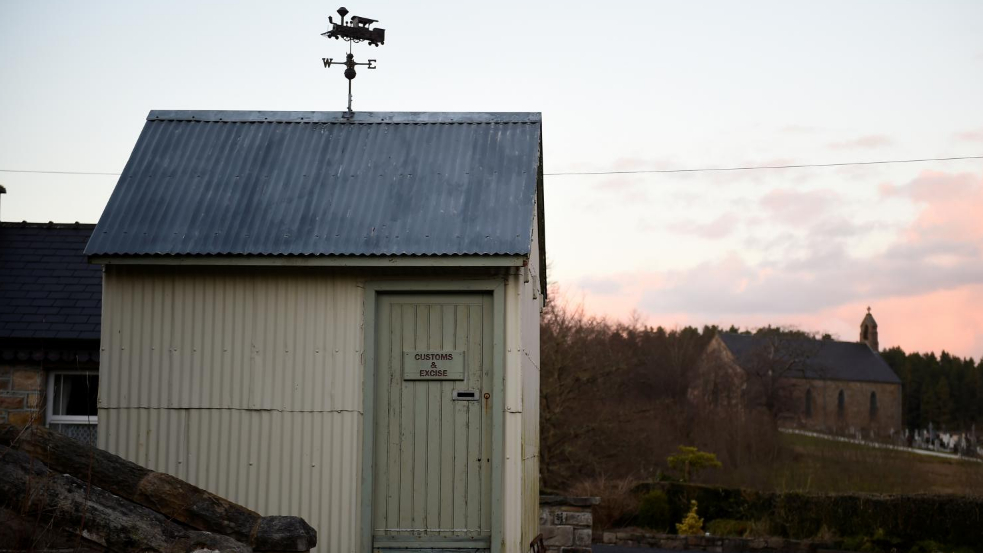
Politics
09:43, 06-Nov-2018
Ireland says UK cannot unilaterally scrap border backstop
Updated
08:53, 09-Nov-2018
CGTN

Ireland is willing to examine ways in which a “backstop” to keep the Irish border open after Brexit could be reviewed so long as it does not permit Britain to unilaterally walk away from it, Prime Minister Leo Varadkar said on Monday.
The sides in the negotiations on the terms of Britain's exit from the European Union have signalled progress on agreeing customs arrangements for an emergency Irish border fix but differences persist on the lifespan of the so-called “backstop”.
British Prime Minister Theresa May raised the possibility of a review mechanism for the backstop in a phone call on Monday with Varadkar that she had sought to update him on the current state of the talks, the Irish government said in a statement.
“The Taoiseach (Prime Minister) indicated an openness to consider proposals for a review, provided that it was clear that the outcome of any such review could not involve a unilateral decision to end the backstop,” the statement said.
“He recalled the prior commitments made that the backstop must apply ‘unless and until' alternative arrangements are agreed.”
May told Varadkar that there would need to be a mechanism through which the backstop could be brought to an end, a spokesman from her office said in a statement.
The phone call followed a report by Britain's Daily Telegraph newspaper that May's Brexit Minister Dominic Raab had privately demanded the right to pull Britain out of the backstop after three months.
Varadkar separately told reporters that an expiry date of that nature would not be worth the paper it is written on.
With just five months until Britain is due to leave the EU, May has yet to nail down a divorce deal, with the insurance arrangement to keep open the border between British-ruled Northern Ireland and EU member state Ireland still the outstanding issue.
An open frontier is seen as crucial to preserving the 1998 Good Friday peace accord that ended decades of Irish sectarian bloodshed. But that goal has been complicated by May's intention to take Britain out of the EU customs union and single market.
Cautious optimism that a deal may be in the offing has also been dampened by uncertainty over whether it would pass the British parliament, deeply split between eurosceptic and pro-EU lawmakers, even within May's Conservative Party.
May later reiterated to Austrian Chancellor Sebastian Kurz that she believed a withdrawal accord was 95 percent complete, and was “confident” of a deal on the Northern Irish backstop.
But, highlighting the political complexities of Brexit, a large Survation poll for Channel 4 found Britons would vote to stay in the European Union if there were another ballot, backing “Remain” by 54 percent to 46 percent. In the 2016 referendum, Britons voted 52-48 percent in favor of Brexit.
Source(s): Reuters

SITEMAP
Copyright © 2018 CGTN. Beijing ICP prepared NO.16065310-3
Copyright © 2018 CGTN. Beijing ICP prepared NO.16065310-3